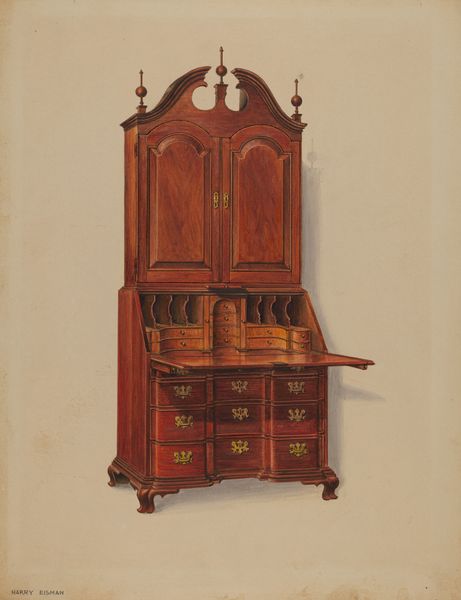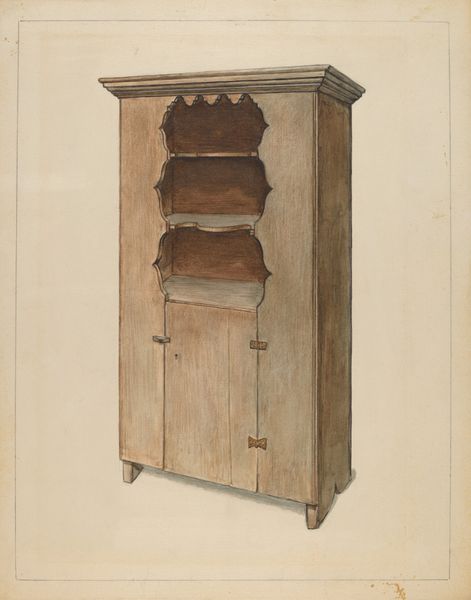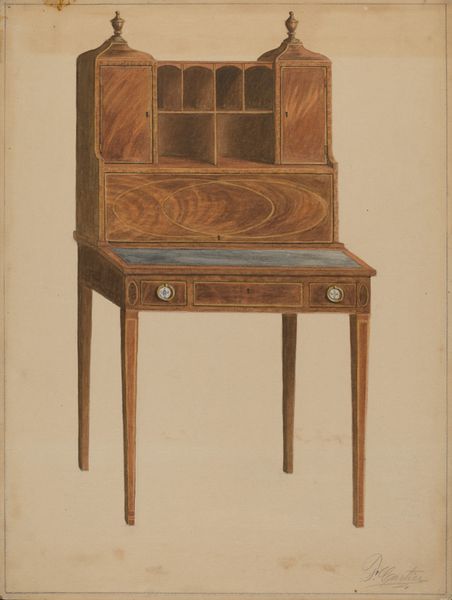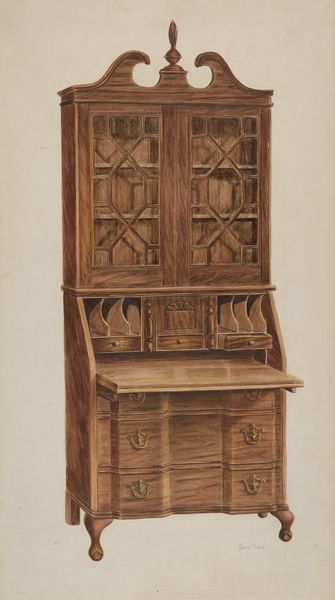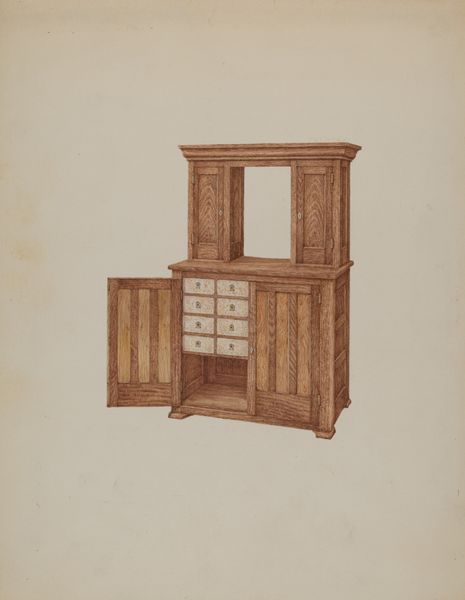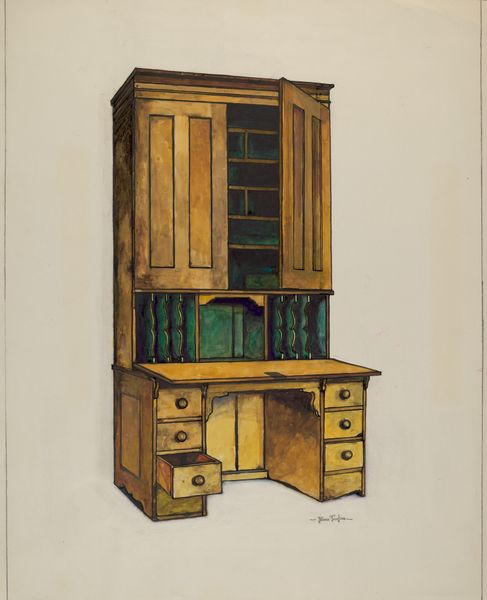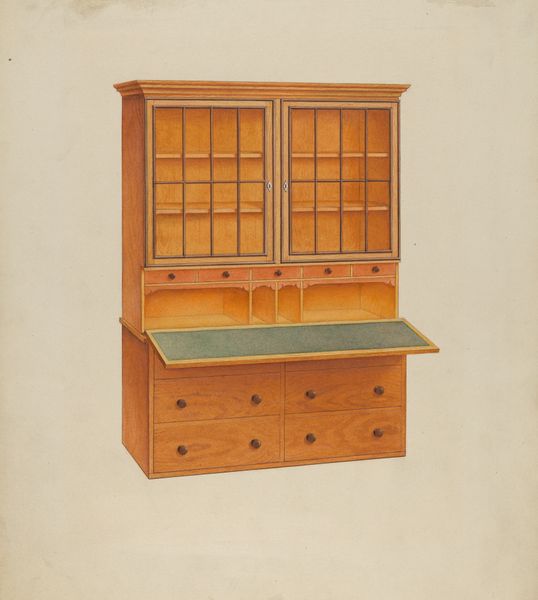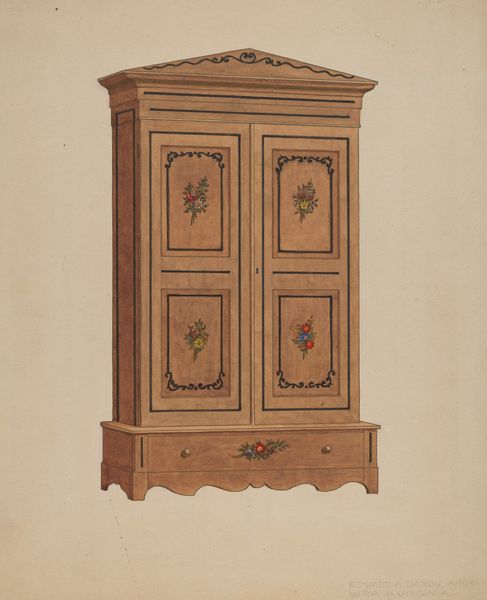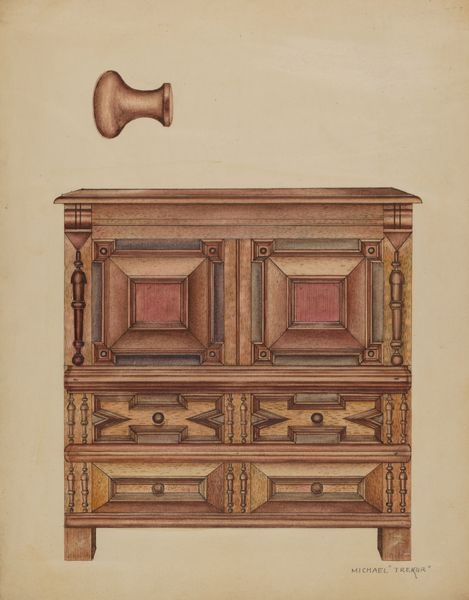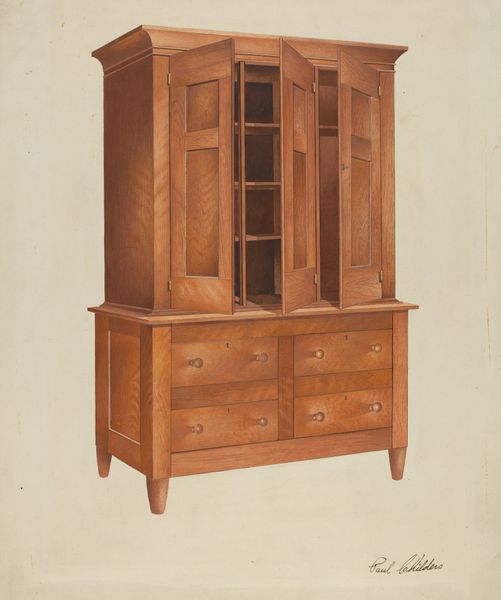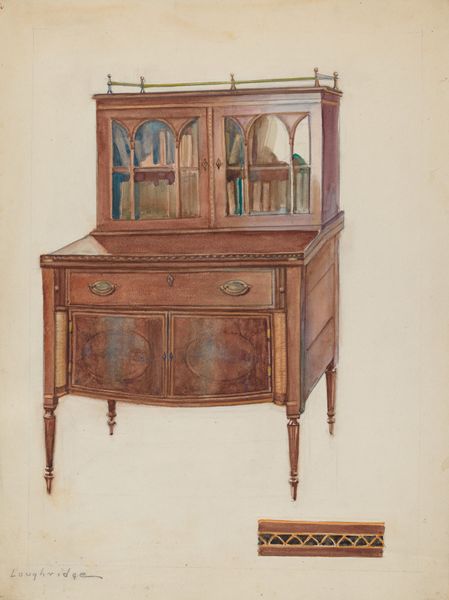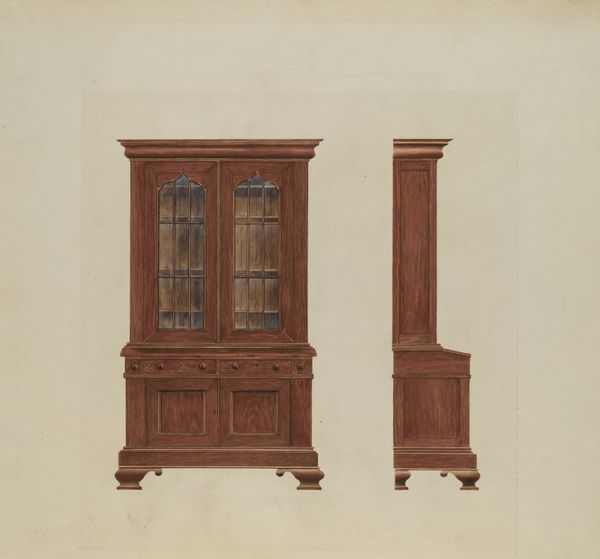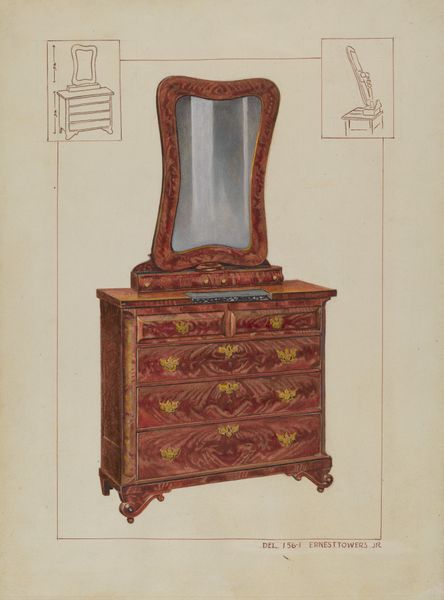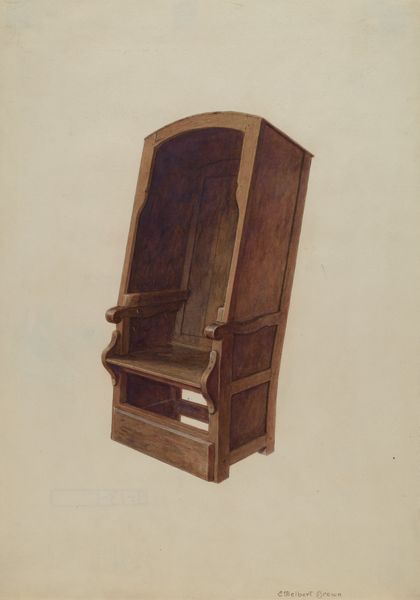
drawing, watercolor
#
drawing
#
water colours
#
oil painting
#
watercolor
#
watercolor
#
realism
Dimensions: overall: 30.2 x 22.1 cm (11 7/8 x 8 11/16 in.)
Copyright: National Gallery of Art: CC0 1.0
Curator: This is Edward L. Loper’s "Walnut Spool Cabinet," a watercolor drawing created around 1938. It renders a humble, everyday object with incredible detail. Editor: It feels… strangely intimate, despite being an image of furniture. There's a sense of stillness, almost melancholy, in its muted colors and meticulous depiction. It is domesticity presented in a sterile way, which makes me question gender roles during this time. Curator: Interesting that you describe the color palette that way. Formally, Loper has very carefully balanced warm and cool tones here. Look at the subtle gradations in the wood grain, how he uses light to define the form. It's a highly representational style, rooted in observation, echoing the prevailing style during this period. Editor: Yet, a spool cabinet speaks directly to domestic labor, primarily the work of women. Does the work celebrate their craft or subtly critique its confinement? What choices did they have? The choice to meticulously depict an object so intrinsically linked to this reality adds layers of complexity, I would argue. Curator: It might simply represent an aesthetic exercise for the artist, capturing the beauty inherent in the object's design. Notice the geometry created through the symmetry of the piece with its strong central axis— Editor: Yes, but can we divorce this formal geometry from the social context? It isn't only about shape and form but is the relationship between gendered roles of maker versus subject. How might that contrast invite commentary, implicit as it may be, on class as well? Curator: A valid argument. However, looking closer I find myself drawn to the surface details, how the artist employs his mastery of the medium in creating depth and texture on paper. Perhaps in doing this, they immortalize the artistic value and importance in craft itself. Editor: And, ultimately, that craft reflects and shapes us, and the domestic spaces we inhabit. Loper gives us a glimpse into those relationships, opening up our consideration of these issues.
Comments
No comments
Be the first to comment and join the conversation on the ultimate creative platform.
